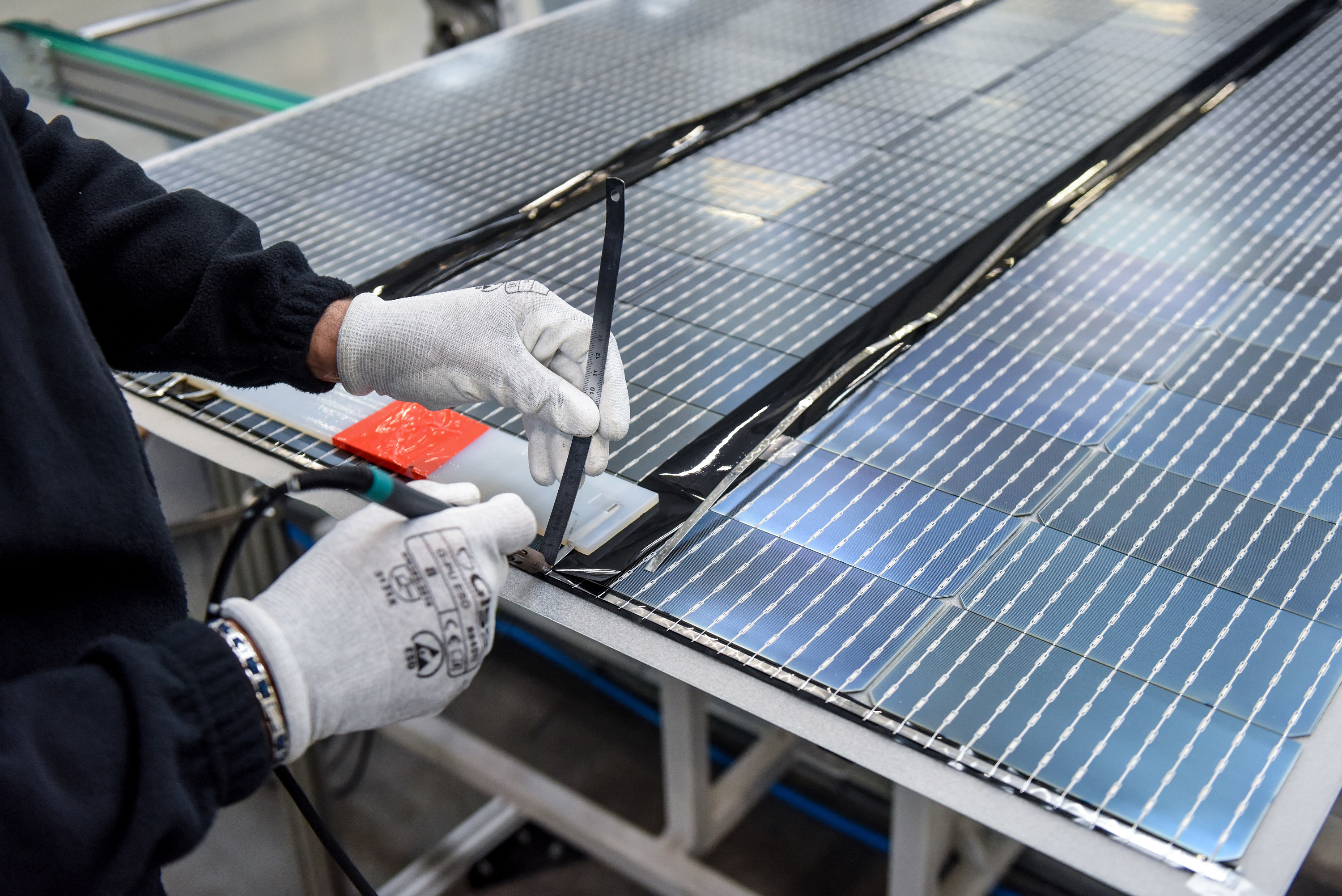When Martin Gobbin tried different translation apps for Stiftung Warentest, he got some creative results. "Blazing Dive" was one of them. One application had translated “blatant dive”, which means “obvious swallow”. According to Gobbin, it didn't happen often that the software was so wrong, but it wasn't an isolated case either.
Anyone who lands on a page in an unfamiliar language on the Internet or stands at a loss in front of a notice board on vacation has probably already used the help of translation software. Google translator is probably one of the best-known examples. Microsoft has the translator and Apple calls it iTranslate.
In addition, Pons also offers an app, Amazon has launched Sayhi, and then there is Talkao or the translation shooting star Deepl, for example.
What the apps have in common is an extensive portfolio on the one hand and a certain susceptibility to errors on the other. Google offers translations in more than 150 languages, including Mongolian and Welsh.
Most apps advertise that they can also make spoken sentences understandable or translate pictures. This is especially helpful in countries with other characters, such as in Asia. For example, if you can't read street signs or the menu.
"Translation programs that are freely available on the Internet can provide a reasonable service in everyday use," says Réka Maret from the Federal Association of Interpreters and Translators (BDÜ). However, the height of fall is also mostly low here.
In the worst case, an unexpected dish ends up on the plate or you get an amused shake of the head when talking to the locals. "These systems do not master the languages like a human being, but only compare translated texts and their templates and spit out a result on this basis."
New software like that of the Cologne-based company Deepl learns with the help of artificial intelligence what words and sentences mean in other languages. "Words are not only considered one after the other, but in a sentence context," explains Janiça Hackenbuchner from the Institute for Translation at the Technical University of Cologne.
In some cases, a sentence is even considered in the context of the previous or following sentence, explains Hackenbuchner. This works quite well, and the apps can also translate a lot of text very quickly.
Nevertheless, the technology has its limits. In 2020, Stiftung Warentest rated none of the apps in Gobbin's comparison better than satisfactory. "Of course, everything has improved a bit since then," says the test editor.
But in addition to problems with ambiguous vocabulary, technical language or special terms from different areas, the software also has a hard time with humor or irony, Gobbin knows. "It becomes very difficult with figurative and poetic language or idioms."
And there are also question marks when it comes to data protection. Some of the apps, which are available for both Android and iOS, sent data to Facebook in the comparison of the product testers. Others wanted access to location or address book.
Another weakness is sexist or racist translations. "The programming itself is actually neutral," explains Oliver Czulo, Professor of Translation Studies at the University of Leipzig. But the software learns from human data, i.e. real existing text material - and adopts corresponding patterns.
An example: A "clever pianist" is sometimes translated from English as "clever pianist". But a “sexy pianist” becomes a “sexy pianist”.
Where all the experts agree: the apps are hardly suitable for professional use. "I would never use a program to translate contracts or letters from the office," says Gobbin.
"There are professional solutions for companies that also keep an eye on data protection," adds Czulo - it's better not to use a free app.
And a dictionary is often the best solution for translating individual words, says Hackenbuchner. Whether online or offline. Because dictionaries offer many more suggestions including definitions and application examples.
"Everything on shares" is the daily stock exchange shot from the WELT business editorial team. Every morning from 7 a.m. with the financial journalists from WELT. For stock market experts and beginners. Subscribe to the podcast on Spotify, Apple Podcast, Amazon Music and Deezer. Or directly via RSS feed.

 Torrential rains in Dubai: “The event is so intense that we cannot find analogues in our databases”
Torrential rains in Dubai: “The event is so intense that we cannot find analogues in our databases” Rishi Sunak wants a tobacco-free UK
Rishi Sunak wants a tobacco-free UK In Africa, the number of millionaires will boom over the next ten years
In Africa, the number of millionaires will boom over the next ten years Iran's attack on Israel: these false, misleading images spreading on social networks
Iran's attack on Israel: these false, misleading images spreading on social networks New generation mosquito nets prove much more effective against malaria
New generation mosquito nets prove much more effective against malaria Covid-19: everything you need to know about the new vaccination campaign which is starting
Covid-19: everything you need to know about the new vaccination campaign which is starting The best laptops of the moment boast artificial intelligence
The best laptops of the moment boast artificial intelligence Amazon invests 700 million in robotizing its warehouses in Europe
Amazon invests 700 million in robotizing its warehouses in Europe Switch or signaling breakdown, operating incident or catenaries... Do you speak the language of RATP and SNCF?
Switch or signaling breakdown, operating incident or catenaries... Do you speak the language of RATP and SNCF? Transport in Île-de-France: operators are pulling out all the stops on passenger information before the Olympics
Transport in Île-de-France: operators are pulling out all the stops on passenger information before the Olympics Radio audiences: France Inter remains firmly in the lead, Europe 1 continues its rise
Radio audiences: France Inter remains firmly in the lead, Europe 1 continues its rise Russian cyberattacks pose a global “threat”, Google warns
Russian cyberattacks pose a global “threat”, Google warns A new Lennon-McCartney duo, more than 50 years after the Beatles split
A new Lennon-McCartney duo, more than 50 years after the Beatles split The Curse vs Immaculée: two thrillers but only one plot
The Curse vs Immaculée: two thrillers but only one plot Mathieu Kassovitz adapts The Beast is Dead!, the comic book about the Second World War and the Occupation by Calvo
Mathieu Kassovitz adapts The Beast is Dead!, the comic book about the Second World War and the Occupation by Calvo Goldorak 'has never lived so much as now'
Goldorak 'has never lived so much as now' Skoda Kodiaq 2024: a 'beast' plug-in hybrid SUV
Skoda Kodiaq 2024: a 'beast' plug-in hybrid SUV Tesla launches a new Model Y with 600 km of autonomy at a "more accessible price"
Tesla launches a new Model Y with 600 km of autonomy at a "more accessible price" The 10 best-selling cars in March 2024 in Spain: sales fall due to Easter
The 10 best-selling cars in March 2024 in Spain: sales fall due to Easter A private jet company buys more than 100 flying cars
A private jet company buys more than 100 flying cars This is how housing prices have changed in Spain in the last decade
This is how housing prices have changed in Spain in the last decade The home mortgage firm drops 10% in January and interest soars to 3.46%
The home mortgage firm drops 10% in January and interest soars to 3.46% The jewel of the Rocío de Nagüeles urbanization: a dream villa in Marbella
The jewel of the Rocío de Nagüeles urbanization: a dream villa in Marbella Rental prices grow by 7.3% in February: where does it go up and where does it go down?
Rental prices grow by 7.3% in February: where does it go up and where does it go down? Europeans: the schedule of debates to follow between now and June 9
Europeans: the schedule of debates to follow between now and June 9 Europeans: “In France, there is a left and there is a right,” assures Bellamy
Europeans: “In France, there is a left and there is a right,” assures Bellamy During the night of the economy, the right points out the budgetary flaws of the macronie
During the night of the economy, the right points out the budgetary flaws of the macronie Europeans: Glucksmann denounces “Emmanuel Macron’s failure” in the face of Bardella’s success
Europeans: Glucksmann denounces “Emmanuel Macron’s failure” in the face of Bardella’s success These French cities that will boycott the World Cup in Qatar
These French cities that will boycott the World Cup in Qatar Champions League: semi-final schedule revealed
Champions League: semi-final schedule revealed Serie A: AS Roma extends Daniele De Rossi
Serie A: AS Roma extends Daniele De Rossi Ligue 1: hard blow for Monaco with Golovin’s premature end to the season
Ligue 1: hard blow for Monaco with Golovin’s premature end to the season Paris 2024 Olympics: two French people deprived of the Olympic Games because of a calculation error by the international federation?
Paris 2024 Olympics: two French people deprived of the Olympic Games because of a calculation error by the international federation?


















